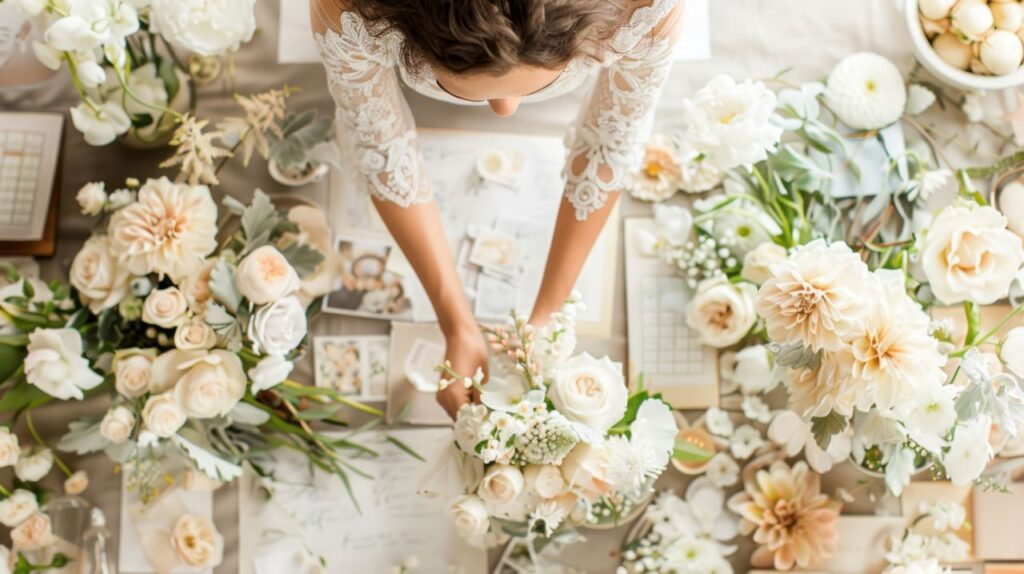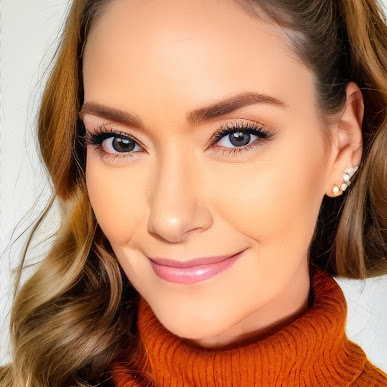Trying to plan a wedding without help is a bold move – and for some couples, it works. But for many, there comes a point when hiring a pro just makes everything feel easier. The tricky part? Figuring out exactly who to hire. That’s where the wedding planner vs. coordinator conversation starts.
This wedding FAQ guide breaks down what each role actually involves, how they differ and how to figure out which one makes the most sense for your wedding.
What’s the main difference between a wedding planner vs. coordinator?
Wedding planner
The most significant difference lies in timing and involvement. A wedding planner works with you from the early stages of planning, often starting right after you get engaged. They help with big-picture decisions like choosing a venue, building a budget, designing your wedding style, hiring vendors and keeping the entire planning timeline on track.
Wedding coordinator
A wedding coordinator is your go-to logistics lead in the final weeks before the wedding. They don’t handle the big-picture planning or design work, but they do ensure all your moving pieces fall into place. Typically coming on board about four to six weeks out, a wedding coordinator will review your vendor contracts, create a detailed timeline, run your rehearsal, manage setup and teardown, communicate with all your vendors and troubleshoot anything unexpected on the day, without ever bothering you unless it’s absolutely necessary.
One easy way to compare wedding planners vs. coordinators, just remember this: planners create the plan, coordinators execute it.
Do I need a wedding planner if I already know what I want?
Knowing what you want doesn’t always mean knowing how to make it happen. You’ve got a Pinterest board, a vision, maybe even your dream dress – but between your job, your inbox, your laundry pile and life in general, who has time to actually pull it all together?
That’s where a planner can step in – not to override your ideas, but to help you bring them to life. When weighing the wedding planner vs. coordinator decision, ask yourself this: Do you have the time, energy and organization skills to manage the entire process and still enjoy being engaged? If not, a planner might just be your new best friend.

Can my venue coordinator do all of this?
Not quite. A venue coordinator works for the venue, not for you. Their main job is to oversee things like room setup, catering (if it’s in-house) and making sure the venue rules are followed.
They’re not going to coordinate your wedding photographer’s timeline, manage your bouquet delivery or ensure your ceremony starts on time. For that, you’ll want a dedicated planner or coordinator who’s hired to support you.
Which one is better for my budget?
Typically, wedding coordinators are more affordable than planners because their scope of work is narrower and their timeline is shorter. But don’t just focus on price – focus on value.
Hiring a wedding planner may cost more up front, but it can save you money in the long run if they help you avoid common mistakes, negotiate better rates and stay on budget. The wedding planner vs. coordinator decision should be based more on the level of help you want, not just the dollar amount.
So who should you hire: wedding planner or wedding coordinator?
Here’s a simple way to figure it out:
You might want a wedding planner if:
- You’re short on time and overwhelmed by decisions
- You’re planning a wedding in a different city
- You want expert help with design, vendors and logistics from day one
- You have a specific aesthetic or complex event plan
You might want a wedding coordinator if:
- You’ve done most of the planning already
- You feel confident with your vendor choices
- You want someone to run the show on the day so that you can relax
- You’re working with a smaller budget
Still not sure? Talk to a few professionals and ask detailed questions about their role. The difference between a wedding planner vs. coordinator isn’t always obvious until you hear how they work. And the right one will make your entire wedding experience – not just the day itself – feel smoother, calmer and far more joyful.









Leave a Reply